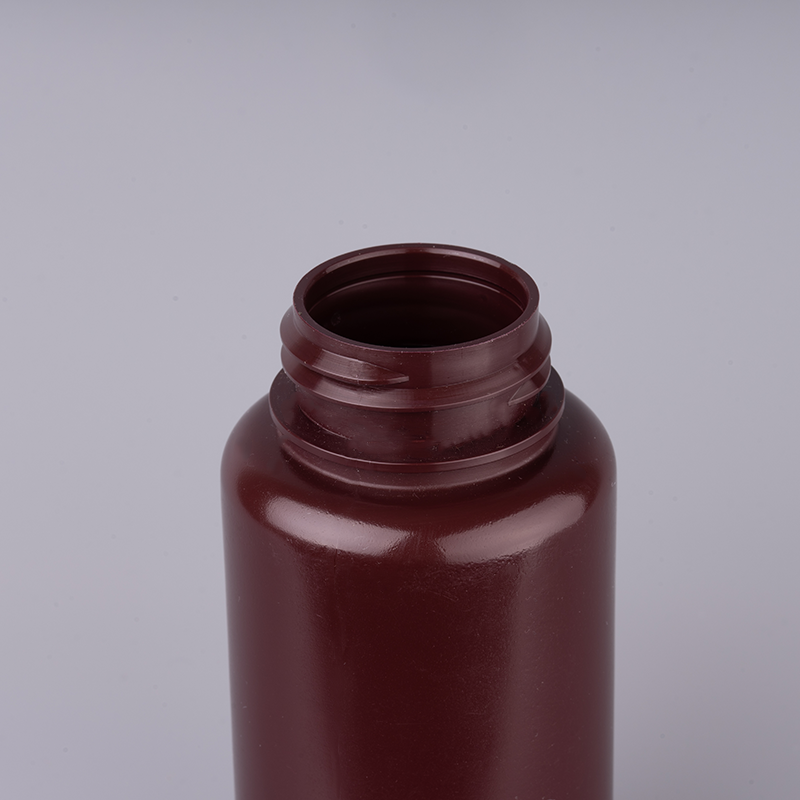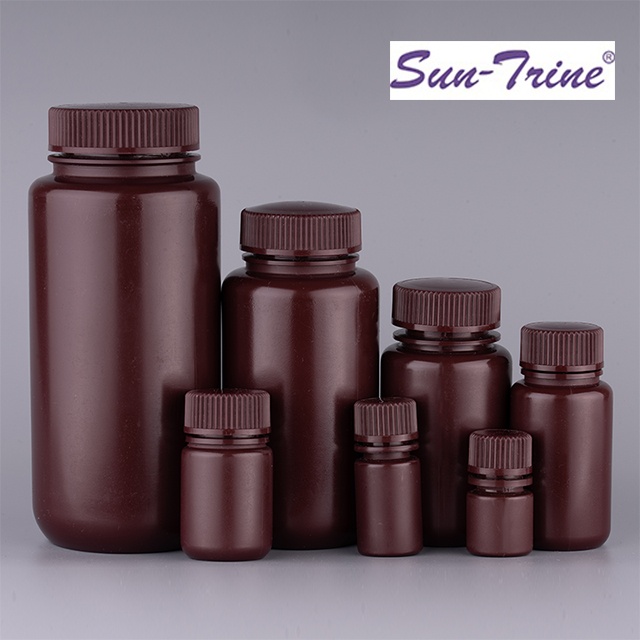Introduction
Glass material selection in laboratory reagent bottles plays a pivotal role in ensuring durability, chemical resistance, and suitability for scientific experiments and analyses. The importance of understanding the glass materials used in manufacturing 500ml glass reagent bottles lies in their durability and reliability within laboratory settings.

Types of Glass Material Utilized
- Borosilicate Glass
Properties
Thermal Resistance: Renowned for its exceptional resistance to thermal shock, making it suitable for temperature variations in laboratory settings.
Chemical Inertness: Highly resistant to acidic and basic solutions, ensuring the integrity and purity of stored reagents.
Durability: Exhibits robustness and durability, reducing the risk of breakage during handling.
Applications
Ideal for laboratory glassware due to its ability to withstand harsh chemicals and temperature fluctuations.
Used in reagent bottles, test tubes, beakers, and other laboratory equipment.
- Soda-Lime Glass
Properties
Strength: Offers decent strength and durability but is more susceptible to thermal shock compared to borosilicate glass.
Economical: More cost-effective than borosilicate glass, making it suitable for various applications where extreme conditions are less frequent.
Wider Availability: Widely available and used in various commercial glass products.
Applications
Commonly used in less demanding laboratory settings where extreme temperature changes or chemical interactions are limited.
Utilized in general-purpose containers and bottles.
- Fused Quartz Glass
Properties
High Purity: Exhibits high purity and exceptional resistance to high temperatures.
Low Thermal Expansion: Maintains dimensional stability under varying temperature conditions.
Chemical Stability: Resistant to most acids, bases, and other aggressive substances.
Applications
Primarily used in specialized laboratory equipment requiring resistance to high temperatures and high-purity conditions.
Found in specific laboratory apparatus and scientific instruments.
- Aluminosilicate Glass
Properties
High Mechanical Strength: Known for its enhanced mechanical strength and impact resistance.
Chemical Resistance: Offers good resistance to acids, alkalis, and other chemicals.
Thermal Performance: Exhibits moderate resistance to thermal shock.
Applications
Utilized in scientific glassware where improved mechanical durability is required.
Found in certain laboratory glass apparatus and specialized containers.
- Reagent-Specific Glasses
- Properties
Tailored Characteristics: Customized glass formulations optimized for specific reagents or chemicals.
Enhanced Resistance: Specifically designed to resist certain aggressive chemicals or reactive substances.
- Applications
Used in specialized laboratory settings where compatibility with specific reagents is crucial.
Tailored for storage or handling of specific chemicals, ensuring safety and integrity.
Understanding the properties and applications of these glass materials aids in selecting the most suitable type for manufacturing reagent bottles, ensuring durability, chemical resistance, and safety in laboratory environments. Each type of glass offers distinct advantages, allowing for tailored choices based on the requirements of the laboratory and the substances being handled.
Properties and Durability of Glass Material for Reagent Bottles
- Borosilicate Glass Properties
Borosilicate glass embodies various properties essential for laboratory use:
Durability and Thermal Resistance: Maintains integrity under extreme temperatures, reducing the risk of thermal stress fractures.
Chemical Inertness: Resistant to corrosion from acids, bases, and other laboratory reagents, ensuring the safety and purity of stored substances.
- Soda-Lime Glass Characteristics
Soda-lime glass possesses its own set of characteristics:
Strength and Versatility: Offers moderate strength but may be more susceptible to thermal shock and chemical reactivity compared to borosilicate glass.
Applications and Limitations: Suitable for less demanding laboratory tasks due to its general durability but may not withstand extreme conditions.
Manufacturing Processes and Impact on Durability
- Glass Manufacturing Techniques
The manufacturing process influences the durability of 500ml glass reagent bottles:
Quality of Glass: The manufacturing method plays a crucial role in determining the structural integrity and overall durability of the glass product.
Uniformity and Strength: Quality control measures ensure consistent and durable glassware for laboratory use.
- Quality Control Measures
Stringent quality checks maintain the standard of 500ml glass reagent bottles:
Testing and Inspection: Regular checks ensure that the glass meets quality standards and remains durable throughout its lifecycle.
Impact on Durability: Effective quality control enhances the reliability and longevity of glassware in laboratory settings.
Laboratory Suitability and Real-World Durability
- Practical Applications in Laboratories
Durability and material type impact suitability for laboratory use:
Work Environment Adaptability: Glass materials directly influence the bottles' suitability for various laboratory procedures and conditions.
Durability Assessment: Anecdotal evidence from laboratory professionals emphasizes the significance of durable glassware in their work environments.
- Customer Testimonials or Case Studies
Real-world experiences demonstrate the durability and performance of 500ml glass reagent bottles:
Customer Insights: Accounts from laboratory professionals about the durability of 500ml glass reagent bottles in their experiments and analyses.
Performance Assurance: Testimonials affirm the reliability and safety of using durable glass materials in laboratory settings.
Conclusion
The choice of glass material significantly influences the durability and reliability of 500ml glass reagent bottles in laboratory applications. Understanding the properties of different glass types, their manufacturing processes, and real-world suitability helps laboratories make informed decisions, ensuring safe and reliable experiments and analyses.
Related Products





